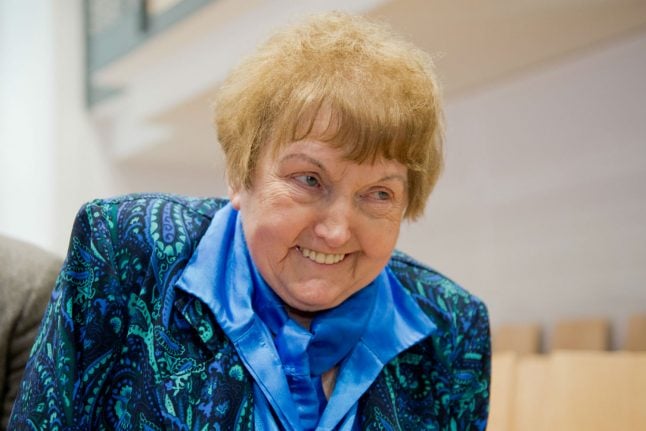The Romanian-born Kor, who founded the Candles Museum in Terre Haute,
Indiana and devoted her life to Holocaust awareness, was 85.
“We are deeply saddened to announce the passing of Eva Kor, Holocaust
survivor, forgiveness advocate, and founder of CANDLES Holocaust Museum and
Education Center,” the museum said on its Twitter account.
We are deeply saddened to announce the passing of Eva Kor, Holocaust survivor, forgiveness advocate, and founder of CANDLES Holocaust Museum and Education Center. Eva passed peacefully today, July 4th, 2019, at 7:10am local time in Krakow, Poland on the annual CANDLES trip.
— CANDLES Museum (@candlesmuseum) July 4, 2019
It added that Kor passed away Thursday in Krakow, southern Poland, during
an annual trip organised by the museum that included a visit to Auschwitz, a
former Nazi camp in the nearby town of Oswiecim.
“Only five days ago we recorded a testimony of Eva Kor, an Auschwitz survivor, for @AuschwitzMuseum Archive. Today came news about her passing
away,” the Auschwitz Museum said in a tweet late Thursday.
“Broken-hearted to inform you that Ewa Kor has passed away and will be
buried in the US,” Poland's Chief Rabbi Michael Schudrich told AFP via a text
message on Friday that used the Polish spelling of her first name.
Kor testified in the 2015 trial of former SS officer Oskar Gröning, the so-called Bookkeeper of Auschwitz, who was accused on 300,000 counts of being an “accessory to murder” of Hungarian Jews.
During the trial, Kor described her experiences at the hands of Mengele,
who had a fascination for twins.

Kor, who was a strong believer in reconciliation, takes the hand of Oskar Gröning during his trial in 2015 in Lüneburg. Photo from DPA and taken by Kor's lawyer.
Sole survivors
She and her twin sister, Miriam, were 10 years old and managed to survive
the regular mystery injections from Mengele, who was dubbed the “Angel of
Death”.
Kor recalled how, suffering a high fever, she saw Mengele at her bedside, “laugh sarcastically”.
“Too bad, she's so young. She has only two weeks to live,” she recalled him
saying.
Crawling on the floor because she was unable to walk, Kor said she went on
to find her sister who had been injected with a substance to freeze the growth
of her kidneys.
“If I had died, Miriam would have been killed with an injection in the heart. Mengele would have performed comparative autopsy,” she said.
On January 27, 1945, the two watched as Russian soldiers liberated
Auschwitz.
READ ALSO: 'I weighed 32 kilos': Auschwitz survivors remember a living hell
“They had smiles on their faces. They gave us chocolate, cookies and hugs. That was our first taste of freedom,” Kor said.
Kor's parents and two other sisters perished at the death camp.
Auschwitz-Birkenau was built by Nazi Germany in occupied Poland. With one
million Jews killed there between 1940 to 1945, the camp has become a symbol
of Adolf Hitler's genocide of the European Jews.
More than 100,000 other people also perished there, including non-Jewish
Poles, Roma, Soviet prisoners of war and anti-Nazi resistance fighters.
SEE ALSO: Record numbers visit Auschwitz in 2018



 Please whitelist us to continue reading.
Please whitelist us to continue reading.
Member comments